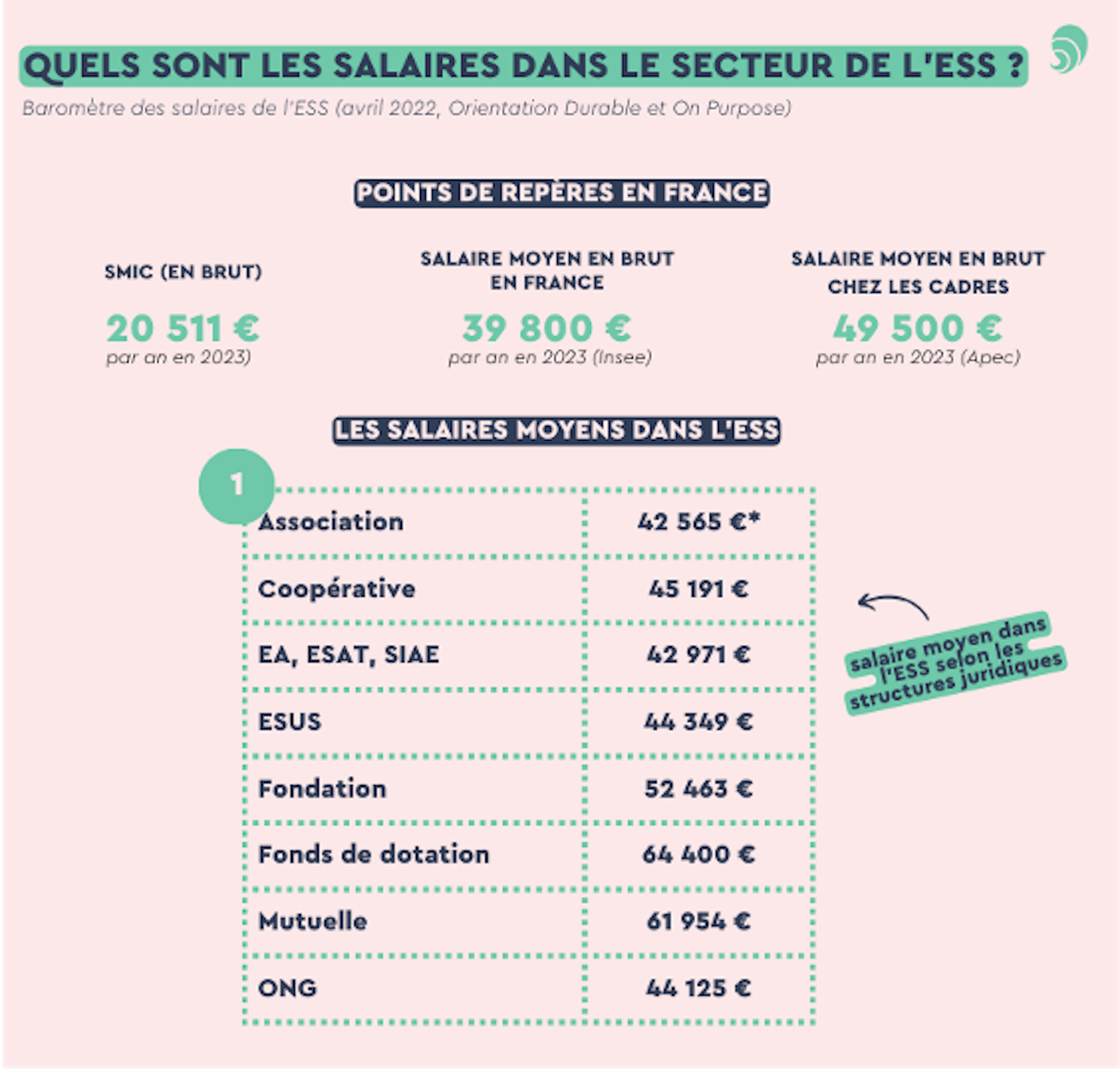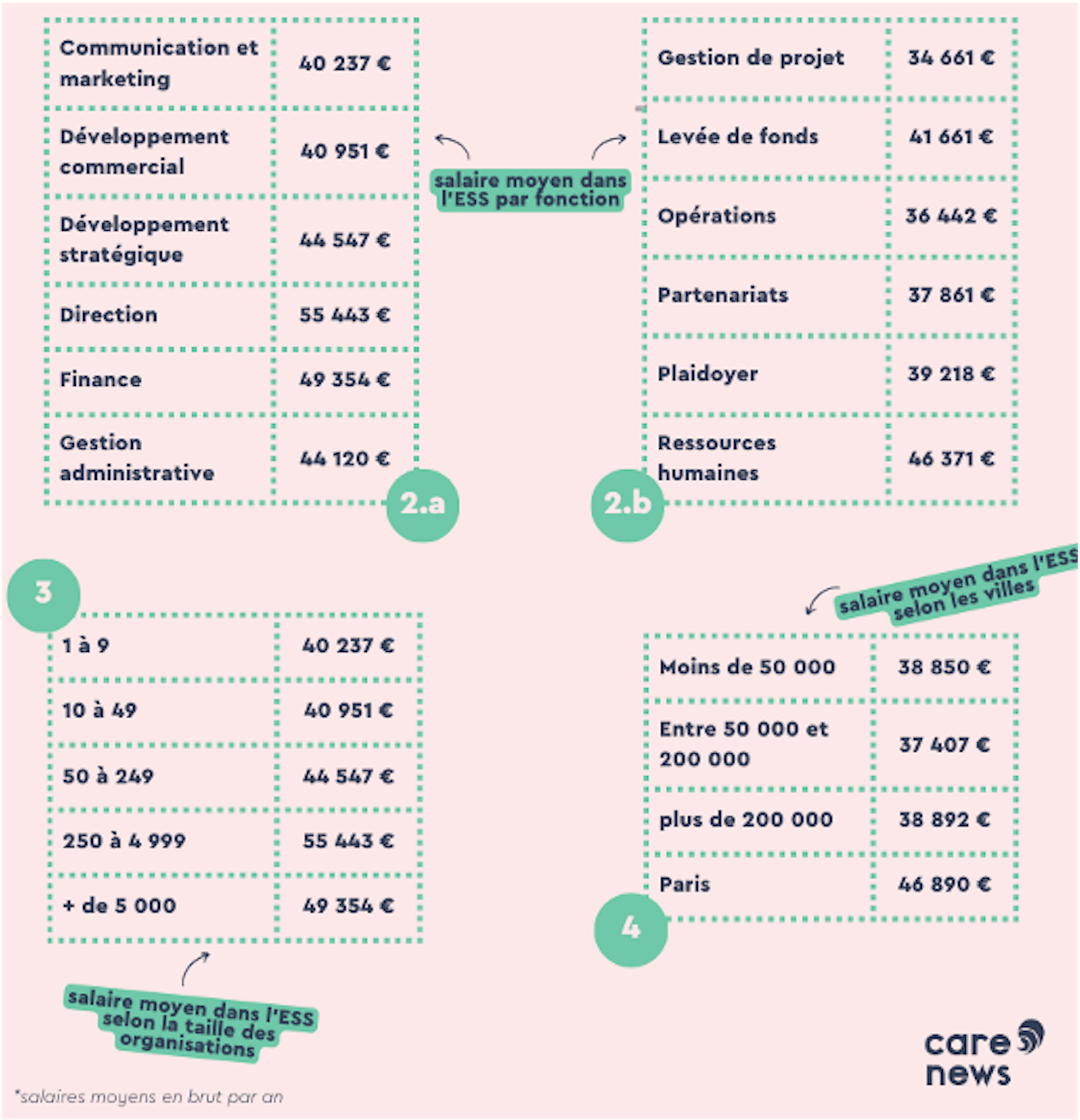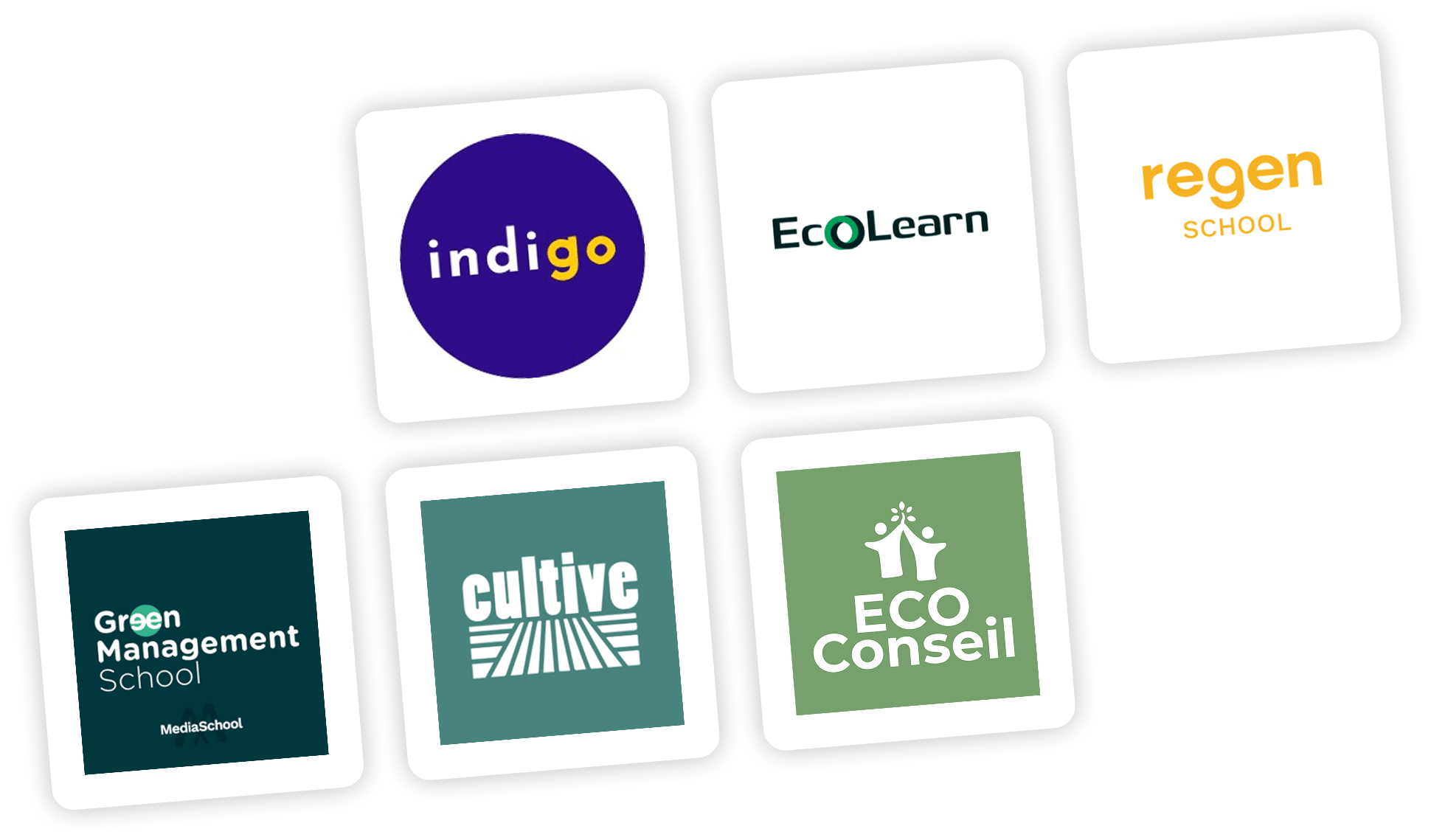"Working in the social and solidarity fields" - What do we mean by this ?
There are many ways to act to work in this sector: No ecological redirection without social justice. Indeed, the ecological challenge concerns us all and cannot be achieved without collective solidarity. To have a positive impact is also to get involved in the solidarity and social sector, and there is work to be done! The "solidarity and social" sector concerns the humanitarian sector of course, but not only! Working in the health and medical-social sector and in various jobs in social and solidarity companies also means working in the solidarity sector. In this article, we detail the possible jobs, the challenges of the sector and the training courses to prepare for them.
How to act in the social and solidarity sector?
By engaging in humanitarian work
And its different branches:
Safety and security
Health and medicine
Finance
Logistics
Mission management
Communication and advocacy...
You can for example work in NGOs, like :
Doctors Without Borders, which provides medical assistance to people whose lives are threatened around the world.
Agrisud International, which provides food security and income in the global south
Acted, which addresses the needs of people in crisis situations
Or in associations like :
International Street Citizen, which supports local initiatives for children living on the street and in highly vulnerable situations.
Linkee, which provides food assistance to people in need.
A Home First, which supports homeless individuals into independent housing.
By joining the social and medico-social sectors
In the medico-social sector
Home Help
Social life assistant
Social Assistant
Educator
Monitor.ice
Socio-cultural/socio-educational animator
Mediator
You can work in structures such as:
ARIM, which cares for family ties in separations.
AODS, which works to reduce educational inequality.
White Butterflies which supports people with disabilities and their families.
In accompanying people
Social Integration Officer
Vocational Counsellor
Local development officer (social mediator)
You can work in structures such as:
AUXILIA, which participates in the reintegration of people in great difficulty.
Les Apprentis d'Auteuil, which protects, trains and professionally integrates young people from fragile families.
And also in Esat, to support the professional integration of people with disabilities.
By working in the SSE
The social and solidarity economy includes companies, associations, mutuals, cooperatives and foundations whose internal functioning and activities are based on a principle of solidarity and social utility. They adopt a democratic and participative management style and reinvest their results while avoiding individual profit as much as possible. These principles are enshrined in their statutes. All sectors and all professions are represented. You can work in health, finance, housing, human resources, accounting, consulting, education, logistics, IT, marketing, project management..;
💡 On the business side, the ESUS approval, Entreprise Solidaire d'Utilité Sociale, makes it possible to distinguish them well from companies with "classic" operations.
Here are some examples of SSE structures:
Abajad, an association that accelerates the employability of socially fragile people through learning French.
Eclosion, an association that enables entrepreneurs to develop alternative business models that put economic development at the service of societal issues impact.
Eqosphere, a company that implements CSR and food waste and waste reduction action plans.
Resilience, a company committed to recruiting people into the energy transition and impact sector.
The issues in these sectors
Like any industry, the health and social sector faces certain challenges:
Unrecognized opportunities
Many SSE structures are not known due to lack of visibility. Initiatives such as the IMPACT France Movement, job platforms and forums dedicated to SSE, such as jobs_that_makesense, incubators and a multiplication of professionals, however, are helping to increase the visibility of these structures. The SSE needs even more arms and brains to shine and grow!
A reputation around working conditions
Being involved in the health and social sector can lead to a temptation to over-commitment, which can lead, in some cases, to burn-out. However, these situations depend a lot on the structures! There are many SSEs that are attentive to the well-being of their employees and that are evolving in favor of a better work/life balance. Among the internal makesense initiatives, there is for example the Serenity Buddy, who is a person assigned to a newcomer and with whom it will be possible to discuss at any time and on any subject, including in a situation of unhappiness at work. These two people do not work directly together. In more and more organizations, especially in positive impact structures, committees dedicated to the quality of life at work (QWL) are also set up to deal with the subjects of work/life balance, well-being at work, the right to disconnect, etc. To help the structure as a whole to evolve and to manage individual difficulties on a case by case basis. Having HR and managerial skills in the SSE is therefore a real asset to ensure and maintain pleasant working conditions !
A belief: "low wages in SSE."
Of course, you won't make millions by joining this sector, which would be contradictory to the values that surround it. But committing yourself does not mean sacrificing yourself! The recruitment firm Sustainable Orientation, in partnership with On Purpose, have conducted a comprehensive study on this subject. The result? The average salary gaps aren't that high! Here is the infographic that Carenews made to present this work:


Apec, in a study posted in early 2022, also reveals that the gap in average salaries between executive jobs in SSE and those in traditional economy companies is only 10%.
In fact, the main difference with the so-called "classic" companies and the SSEs, is the choice to maintain a small internal salary gap, in accordance with the rules of the SSE and in particular those implied by the ESUS approval: "the five best paid must not receive more than seven times the SMIC and the best paid cannot exceed it by ten times".
Recruitment difficulties for certain positions
Finally, a challenge that has become apparent in recent years is the shortage of candidates for certain jobs in the sector, particularly in the medical-social sector. Of course, the sector is not perfect, but its degraded image and the prejudices that surround it also make it less attractive. However, the needs are very real. For example, 12 million people live with a disability, more and more French people are forced to live with a chronic illness and by 2050, we will have 4 million seniors in France. And in the SSE, there is a lack of candidates to take over the reins of associations. The sector therefore needs trained professionals who are aware of the issues at stake, who are motivated and have the power to make things happen from the inside !
How to train to work in these sectors?
To work in national and international solidarity
ICP
With short formats of a few days, andlong ones of 6 to 12 months, the Institut Catholique de Paris trains those who wish to develop their skills in the service of solidarity and peace. Some are taken in person-to-person in Paris and others can be done in a hybrid format with an online component.
How to finance it?
The training is eligible for the CPF, the Opco and the Pôle emploi
3A Solidarity Management
To be able to manage humanitarian projects in international organizations, you can take the Msc International Cooperation and Humanitarian Action in 2 years from 3A school. Accessible after a Bac+3, it can be taken in Lyon, Paris, Rennes, Bordeaux or Toulouse. This training is for you if you want to intervene in emergency situations and participate in the development of countries in crisis.
How to finance it?
The training is eligible for Pôle Emploi, the Opco and the CPF.
For a reconversion in the humanitarian field
Bioforce
Delivered by humanitarians and built on 40 years of experience in the field, Bioforce's training programs were created to train new professionals or solidify the skills of those who work there. In HR, finance, logistics... the learning is diverse. Lasting from 1 to 6 months, they take place in Lyon or online.
How to finance it?
The courses are eligible for CPF and other financing solutions listed by Bioforce on its website.
To manage in the SSE
Sciences Po Grenoble
Is your thing more the social and solidarity economy? The Master's degree in Social Economy Development and Expertise may be for you! It gives in hand, all the necessary skills for future SSE leaders. It takes place in 2 years,in the city of Grenoble. And the 2nd year is alternating.
How to finance it?
Depending on your situation, you may be able to benefit from financing mechanisms. To be assisted in your financing process, you can contact the Continuing Education and Professional Integration Department (DFCIP).
To go further
👉Do not hesitate to interact with associations and NGOs
👉It's easier to get up in the morning for a good cause
👉Interview with Ophelia Barbut of Sos Pulse Group
👉What skills are SSE recruiters looking for?
To take action
👉Find all of our job openings in the humanitarian sector and in the social.
👉And our training courses in ecological and social transition professions



